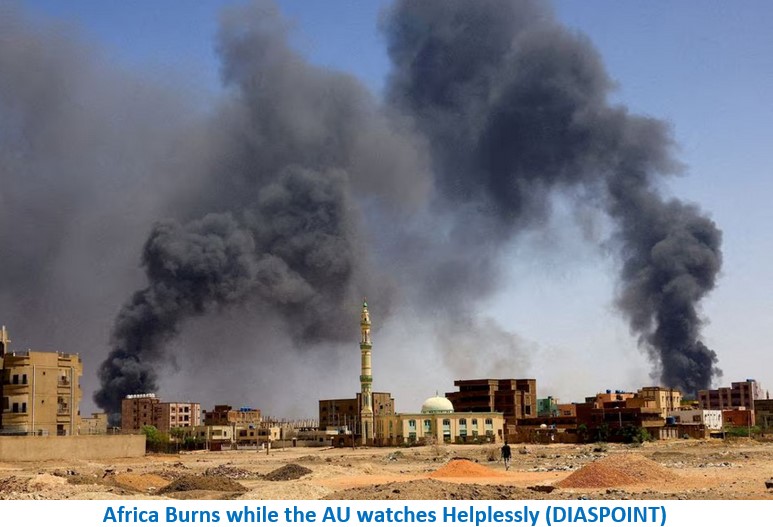Sudan slides further into war as diplomacy flounders
Post By Diaspoint | June 15, 2023

Shooting their way through truces, Sudan’s warring factions have shown the limited leverage the United States, Saudi Arabia and other foreign powers have in ending a two-month conflict that is driving the nation deeper into disaster.
Neither the army nor the paramilitary Rapid Response Forces (RSF) seem far enough backed into a corner to take ceasefire talks in Jeddah seriously, which diplomats partly blame on rival regional powers aligning with different sides.
Bringing more regional players to support talks, such as Egypt, which sees the army as the best bet for a stable neighbour, and the United Arab Emirates, which has backed the RSF leader in the past, may be key to progress, one U.S. official said.
For now, after almost two months of war, Africa’s third biggest nation and its 49 million people – close to 2 million of whom have already fled their homes – is hurtling towards a deeper humanitarian crisis with its own farms at risk of failing and aid unable to reach all those in need after swathes of the capital and the west of Sudan became a war zone.
“Nobody will negotiate in earnest until they feel that the military balance is not moveable any more,” said Rift Valley Institute analyst Magdi El Gizouli. “The internal dynamic of this war is a bit beyond what an external actor can really influence”.
After the latest 24-hour truce expired on Sunday, residents in Khartoum and capital area reported fresh artillery fire and clashes. They said fighting had intensified since early June.
The United States and Saudi Arabia, which lies across the Red Sea from Sudan, have sponsored talks in the Saudi port city of Jeddah. But every temporary truce has been violated so far, even though both sides say they are committed to negotiations and despite U.S. sanctions.
Diplomats with knowledge of the talks say the Jeddah process was faltering partly because key players were absent, including Egypt, which also has a general-turned-politician at its helm, and the UAE, which has ties to RSF commander Mohamed Hamdan Dagalo, known as Hemedti.
A senior U.S. State Department official told reporters existing parties to the talks had considered broader participation, adding that Cairo and Abu Dhabi “do have specific leverage that could be helpful.”
A Cairo-based diplomat said a new African Union-led forum aimed to bind Arab and African states into the process, including Egypt and the UAE, though it was unclear that either country was ready to exert real pressure.
Read More from original source
